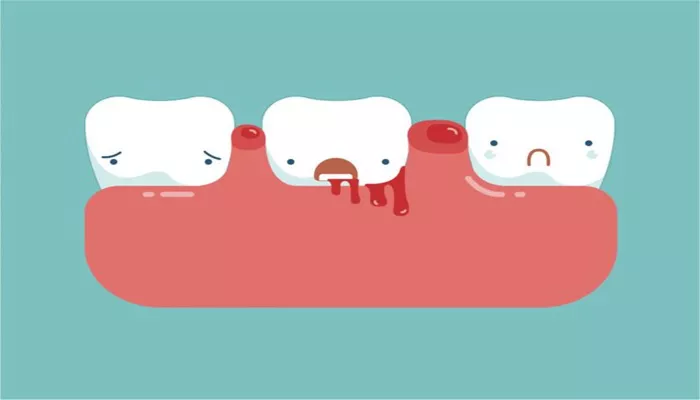Wisdom teeth, also known as third molars, are the last teeth to erupt in the human mouth, typically appearing between the ages of 17 and 25. However, some individuals may experience delayed eruption, with wisdom teeth sometimes emerging later in life. When it comes to wisdom teeth extraction, age is often a factor considered by dentists. While there is no definitive age cutoff for wisdom teeth removal, the suitability of the procedure can vary depending on an individual’s oral health and specific circumstances. In this article, we will explore the reasoning behind the notion that 34 years old may not be the ideal age for wisdom teeth extraction, examining various factors that influence this decision from a professional dental perspective.
Understanding Wisdom Teeth and Their Eruption Patterns
Wisdom teeth are located at the back of the mouth, behind the second molars. Due to the limited space in the jaw, many people do not have enough room for these teeth to erupt properly. When wisdom teeth are unable to erupt fully or become impacted (stuck in the jawbone or gum tissue), they can cause a range of oral health issues. These issues include pain, swelling, infection, and damage to adjacent teeth and the surrounding jawbone.
Age and Wisdom Teeth Extraction: Factors to Consider
Oral Health Status
At 34 years old, an individual’s oral health status is a crucial factor in determining the suitability of wisdom teeth extraction. If wisdom teeth have already erupted fully and are causing no symptoms or problems, extraction may not be necessary. However, if they are partially erupted, impacted, or causing discomfort, extraction may be recommended to prevent future complications.
Bone Density and Healing Process
As we age, the bones in our body, including the jawbone, become denser and less elastic. This can make wisdom teeth extraction more challenging for dentists, as the teeth may be more firmly embedded in the bone. Additionally, the healing process may take longer and be more complicated in older adults compared to younger patients. While 34 is not considered an elderly age, changes in bone density can still impact the extraction process and recovery time.
Risk of Complications
Wisdom teeth extraction, especially in complex cases involving impacted teeth, can carry risks of complications such as infection, bleeding, and nerve damage. These risks may increase slightly in older patients due to factors such as underlying medical conditions, reduced immune response, and slower healing rates. However, with proper preoperative assessment, careful surgical planning, and postoperative care, these risks can be minimized.
General Health and Medical Conditions
At 34 years old, individuals may have developed various medical conditions that can impact the suitability of wisdom teeth extraction. These conditions can include diabetes, heart disease, high blood pressure, and others. It is essential for dentists to assess patients’ overall health and medical history before recommending wisdom teeth extraction to ensure that the procedure is safe and well-tolerated.
Cost and Insurance Coverage
The cost of wisdom teeth extraction can vary depending on factors such as the complexity of the case, the location of the teeth, and the dentist’s fees. For individuals aged 34 and older, dental insurance coverage may be limited or exclude wisdom teeth extraction as a routine procedure. Therefore, cost considerations may influence the decision to undergo extraction, especially for those who do not have comprehensive dental insurance.
Why Some Dentists May Advise Against Wisdom Teeth Extraction at 34
Despite the potential benefits of wisdom teeth extraction in preventing future oral health issues, some dentists may advise against the procedure at 34 years old due to the aforementioned factors. In particular, if wisdom teeth are asymptomatic and not causing any immediate problems, dentists may recommend monitoring the situation closely rather than opting for immediate extraction. This approach allows for early intervention if any issues arise while avoiding the risks and costs associated with surgery.
However, it is important to note that each individual’s case is unique, and the decision to extract wisdom teeth should be based on a comprehensive assessment of their oral health, medical history, and personal preferences. If wisdom teeth are causing discomfort, infection, or damage to adjacent teeth, extraction may be the best course of action, regardless of age.
Alternative Approaches to Wisdom Teeth Management
For individuals who are not suitable for wisdom teeth extraction due to age or other factors, alternative approaches to management may be considered. These approaches can include:
Close Monitoring
Regular dental check-ups and x-rays can help monitor the position and condition of wisdom teeth over time. If any changes or problems are detected, early intervention can be planned.
Antibiotics and Pain Relief
In cases where wisdom teeth are causing mild discomfort or infection, antibiotics and pain relief medications may be prescribed to manage symptoms and prevent further complications.
Orthodontic Treatment
For individuals with crowded mouths, orthodontic treatment may be recommended to create enough space for wisdom teeth to erupt properly. However, this approach is less common and may not be suitable for everyone.
Conclusion
In conclusion, while 34 years old may not be considered the ideal age for wisdom teeth extraction due to various factors such as oral health status, bone density, risk of complications, and cost considerations, the decision to extract wisdom teeth should ultimately be based on an individual’s unique circumstances. If wisdom teeth are causing problems or are likely to cause problems in the future, extraction may be the best option, regardless of age. It is essential to consult with a qualified dentist for a comprehensive assessment and personalized recommendation to ensure optimal oral health outcomes. Regular dental check-ups and early intervention can help manage wisdom teeth effectively and prevent potential complications.
Related topics:

